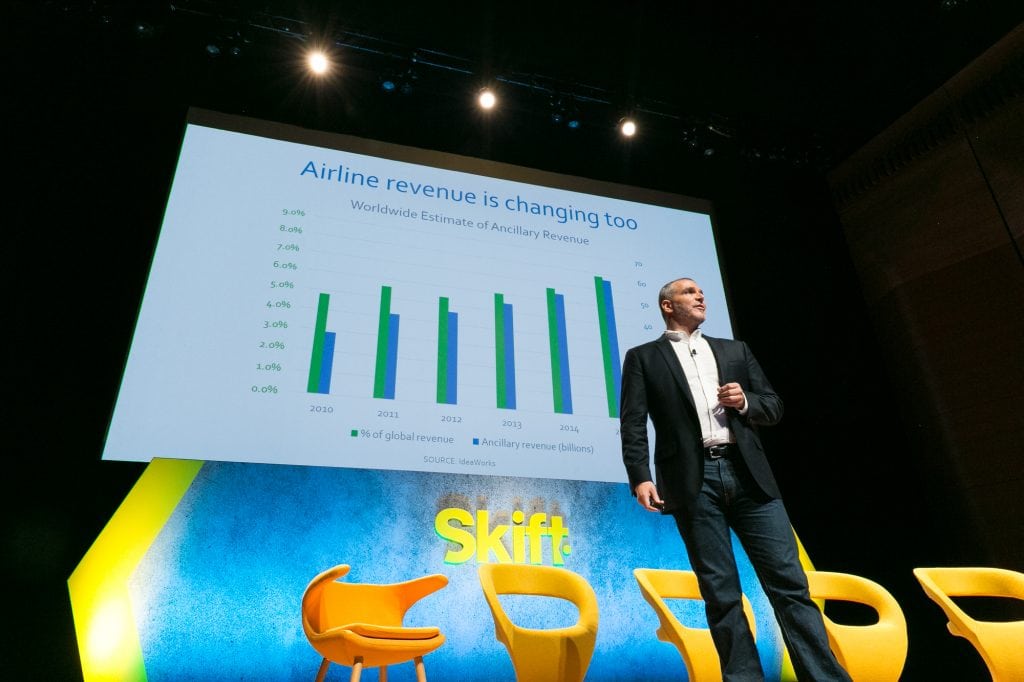Routehappy CEO: Airlines, Like Coffee, Are Not a Commodity Business

Skift Take
Airlines must understand flyers seek value more than the cheapest price and market their products accordingly, Routehappy CEO Robert Albert said Tuesday at the Skift Global Forum in New York City.
"Most of us care about the experience," Albert said. "We don't consider this product the same as buying gas."
Routehappy ranks the quality of an airline's flight based on several factors, including the seat, the availability of food, and the breadth of inflight entertainment, and it can provide an overall satisfaction score for each itinerary. Expedia is using the data, which is why on a flight from Chicago to New York LaGuardia, a consumer can choose between a flight operated by Spirit Airlines (score: 6.4 out of 10) or American Airlines (7.8 of 10).
"Our industry has a false belief that the only thing that matters is price," Albert said. "If that were true, we would all be flying Spirit."
To succeed, Routehappy must persuade more airlines and online travel sellers that they should try to differentiate products on the Web. While the data is helpful for short routes, it can be vital for longer ones, since not all-long haul coach experiences are the same.
On a Boeing 777, Albert noted, some carriers have nine seats across, while others have 10, and he said airlines with a better product should be more vocal in advertising it to customers. Passengers might be willing to pay more for a slightly wider coach seat, but many airlines with nine seats across don't advertise it, so travelers don't know it.
The same goes for business class. Most airlines now have flatbeds in business class, but some still have angled seats. And often the fare is the same, so some travelers are essentially overpaying for a subpar product.
"In a competitive industry, if the consumers in that industry perceive the product as only as being about price, that's a problem," Albert said. "Commoditization is a big problem for airlines."
Albert joked that airlines should learn from the coffee industry. Where once, several decades ago, most Americans started their day with a cup of boring cup of cheap coffee, today they drink all kinds, both high and low end. Coffee is no longer a commodity, and consumers who like coffee are willing to pay more money for it.
"We used to just drink it as fuel to start the day, and it was low cost," he said "Today, coffee is completely transformed."




